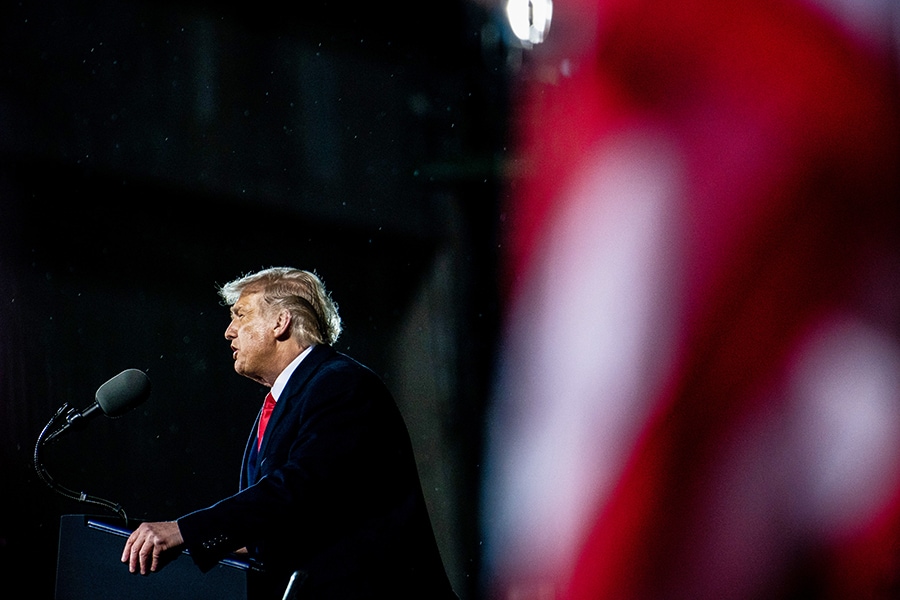
Trump's business is charged with 'audacious' tax fraud
Although Trump was not accused of a crime, an indictment of the company that carries his name strikes a blow to the former president just as he has resumed holding rallies
 Then President Donald Trump speaks at a campaign rally in Duluth, Minn., Sept. 30, 2020. An indictment announced by the office of Manhattan district attorney Cyrus Vance Jr. on Thursday, July 1, 2021, against the Trump organization and it’s long-serving chief financial officer marked a major turning point in the long-running investigation centered on the failure of the CFO, Allen Weisselberg, to pay taxes on a variety of valuable perks by the received from the Trump Organization.
Then President Donald Trump speaks at a campaign rally in Duluth, Minn., Sept. 30, 2020. An indictment announced by the office of Manhattan district attorney Cyrus Vance Jr. on Thursday, July 1, 2021, against the Trump organization and it’s long-serving chief financial officer marked a major turning point in the long-running investigation centered on the failure of the CFO, Allen Weisselberg, to pay taxes on a variety of valuable perks by the received from the Trump Organization.
Image: Erin Schaff/The New York Times
NEW YORK — The Trump Organization, the real estate business that catapulted Donald Trump to tabloid fame, television riches and ultimately the White House, was charged Thursday with running a 15-year scheme to help its executives evade taxes by compensating them with fringe benefits that were hidden from authorities.
The Manhattan district attorney’s office, which has been conducting the investigation alongside the New York attorney general, also accused a top executive, Allen H.
Weisselberg, of avoiding taxes on $1.7 million in perks that should have been reported as income. Weisselberg, Trump’s long-serving and trusted chief financial officer, faces grand larceny, tax fraud and other charges.
“To put it bluntly, this was a sweeping and audacious illegal payments scheme,” Carey Dunne, general counsel for the Manhattan district attorney, Cyrus Vance, said during an arraignment in State Supreme Court in Manhattan.
©2019 New York Times News Service




